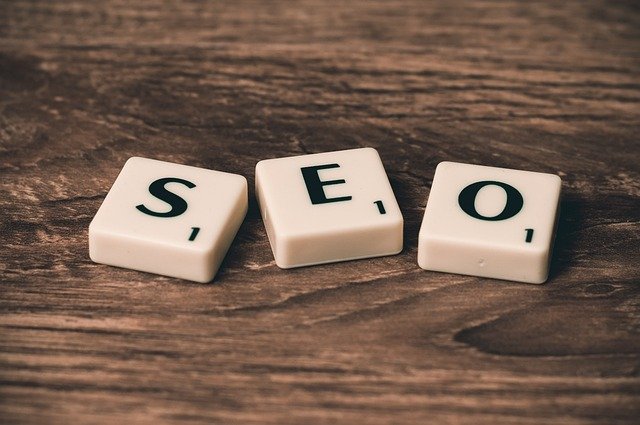A Comprehensive Guide to Commercial Waste Management Companies in 2025
Managing commercial waste effectively is essential for businesses of all sizes. From restaurants and retail stores to manufacturing facilities and office buildings, proper waste disposal not only ensures compliance with environmental regulations but also contributes to sustainability goals. As we move into 2025, the commercial waste management industry continues to evolve with innovative technologies, stricter regulations, and a growing emphasis on recycling and circular economy principles. This guide explores the landscape of commercial waste management companies, the types of services they offer, and what businesses should consider when selecting a provider.

Commercial waste management has become a critical component of business operations across industries. With increasing environmental awareness and regulatory requirements, companies must partner with reliable waste management providers to handle their disposal needs efficiently. The industry has grown significantly, offering specialized services tailored to different business requirements, from general waste collection to hazardous material handling and comprehensive recycling programs.
Understanding the Landscape of Commercial Waste Management
The commercial waste management sector encompasses a diverse range of service providers, from large multinational corporations to regional and local operators. These companies work with businesses to collect, transport, process, and dispose of various waste streams in compliance with local, state, and federal regulations. The landscape has shifted considerably in recent years, with sustainability becoming a central focus. Many providers now emphasize waste diversion strategies, aiming to reduce the amount of material sent to landfills through recycling, composting, and waste-to-energy programs. Technology integration has also transformed the industry, with smart bins, route optimization software, and data analytics helping companies improve efficiency and reduce environmental impact. Businesses today can choose from providers offering customized solutions that align with their specific waste generation patterns and sustainability objectives.
Types of Waste Management Companies
Commercial waste management companies typically fall into several categories based on their service offerings and specializations. Full-service waste management companies provide comprehensive solutions, including collection, transportation, recycling, and disposal services. These providers often operate their own processing facilities and landfills, offering end-to-end waste management. Specialized waste handlers focus on specific waste streams such as medical waste, electronic waste, construction debris, or hazardous materials, requiring specialized equipment and certifications. Recycling-focused companies prioritize material recovery and work with businesses to maximize diversion rates through single-stream or multi-stream recycling programs. Regional and local haulers serve specific geographic areas and often provide personalized service with competitive pricing for small to medium-sized businesses. Waste consulting firms help organizations develop waste management strategies, conduct audits, and identify opportunities for cost savings and sustainability improvements.
Services Offered by Commercial Waste Management Providers
Modern commercial waste management companies offer a wide array of services designed to meet diverse business needs. Standard waste collection remains the foundation, with scheduled pickups using various container sizes from small bins to large compactors. Recycling services have expanded significantly, covering paper, cardboard, plastics, metals, glass, and organic materials. Many providers now offer composting programs for food service businesses, diverting organic waste from landfills. Specialized services include document shredding and secure destruction, electronic waste recycling, construction and demolition debris removal, and hazardous waste handling. Additional offerings may include waste audits to identify reduction opportunities, sustainability reporting to help businesses track their environmental impact, and employee training programs to improve waste sorting and compliance. Some companies also provide equipment rental and maintenance, ensuring businesses have the appropriate containers and compactors for their waste volumes.
Key Considerations When Selecting a Waste Management Partner
Choosing the right commercial waste management company requires careful evaluation of several factors. Service coverage and reliability are paramount, as businesses need consistent pickup schedules and responsive customer service. Compliance and certifications should be verified, ensuring the provider meets all regulatory requirements and holds necessary permits for handling specific waste types. Sustainability practices and diversion rates indicate a company’s commitment to environmental responsibility, which may align with your organization’s corporate social responsibility goals. Pricing structure and contract terms vary widely, with options for fixed monthly fees or variable pricing based on actual waste volume. Technology and reporting capabilities enable businesses to track waste generation, monitor costs, and demonstrate progress toward sustainability targets. Customer service quality, including responsiveness to service issues and flexibility in accommodating changing needs, significantly impacts the partnership experience. Reputation and references from similar businesses in your industry provide valuable insights into provider performance and reliability.
Cost Considerations and Pricing Models
Understanding the cost structure of commercial waste management services helps businesses budget appropriately and identify potential savings opportunities. Pricing typically depends on factors such as service frequency, container size, waste type, location, and contract length. Monthly costs for basic waste collection can range from a few hundred dollars for small businesses with minimal waste to several thousand dollars for large facilities generating significant volumes. Recycling services may be included in comprehensive packages or priced separately, with some materials generating revenue through commodity sales that can offset costs. Specialized waste handling, such as hazardous materials or medical waste, commands premium pricing due to regulatory requirements and specialized processing needs.
| Service Type | Typical Monthly Cost Range | Key Factors Affecting Price |
|---|---|---|
| Basic Waste Collection (small business) | $150 - $500 | Container size, pickup frequency, location |
| Comprehensive Waste & Recycling (medium business) | $500 - $2,000 | Waste volume, recycling participation, service level |
| Large Commercial Facility | $2,000 - $10,000+ | Multiple waste streams, specialized services, equipment needs |
| Specialized Waste (medical, hazardous) | $300 - $3,000+ | Waste type, volume, compliance requirements |
| Consulting & Audit Services | $1,000 - $5,000 per project | Facility size, scope of assessment |
Prices, rates, or cost estimates mentioned in this article are based on the latest available information but may change over time. Independent research is advised before making financial decisions.
Businesses can often reduce costs through waste reduction initiatives, improved sorting practices, and negotiating multi-year contracts. Some providers offer incentive programs that reward waste diversion achievements with reduced fees.
Future Trends in Commercial Waste Management
The commercial waste management industry continues to evolve with emerging technologies and changing regulatory landscapes. Automation and artificial intelligence are increasingly used for sorting and processing materials, improving efficiency and recovery rates. Extended producer responsibility programs are expanding, shifting disposal costs to manufacturers and encouraging sustainable product design. Zero waste initiatives are gaining traction, with businesses setting ambitious goals to eliminate landfill disposal entirely. Circular economy principles are reshaping how companies view waste, treating it as a resource rather than a disposal problem. Smart waste management systems using sensors and data analytics help optimize collection routes, reduce fuel consumption, and provide real-time insights into waste generation patterns. As environmental regulations tighten and sustainability becomes a competitive differentiator, businesses that partner with forward-thinking waste management providers will be better positioned to meet future challenges while controlling costs and minimizing environmental impact.
Conclusion
Navigating the commercial waste management landscape requires understanding the diverse range of providers, services, and pricing models available. As businesses face increasing pressure to improve sustainability performance while managing operational costs, selecting the right waste management partner becomes a strategic decision. By evaluating service offerings, sustainability practices, technology capabilities, and cost structures, organizations can find providers that align with their operational needs and environmental goals. The industry’s continued evolution toward innovation and sustainability presents opportunities for businesses to reduce waste, lower costs, and demonstrate environmental leadership in their communities and industries.




